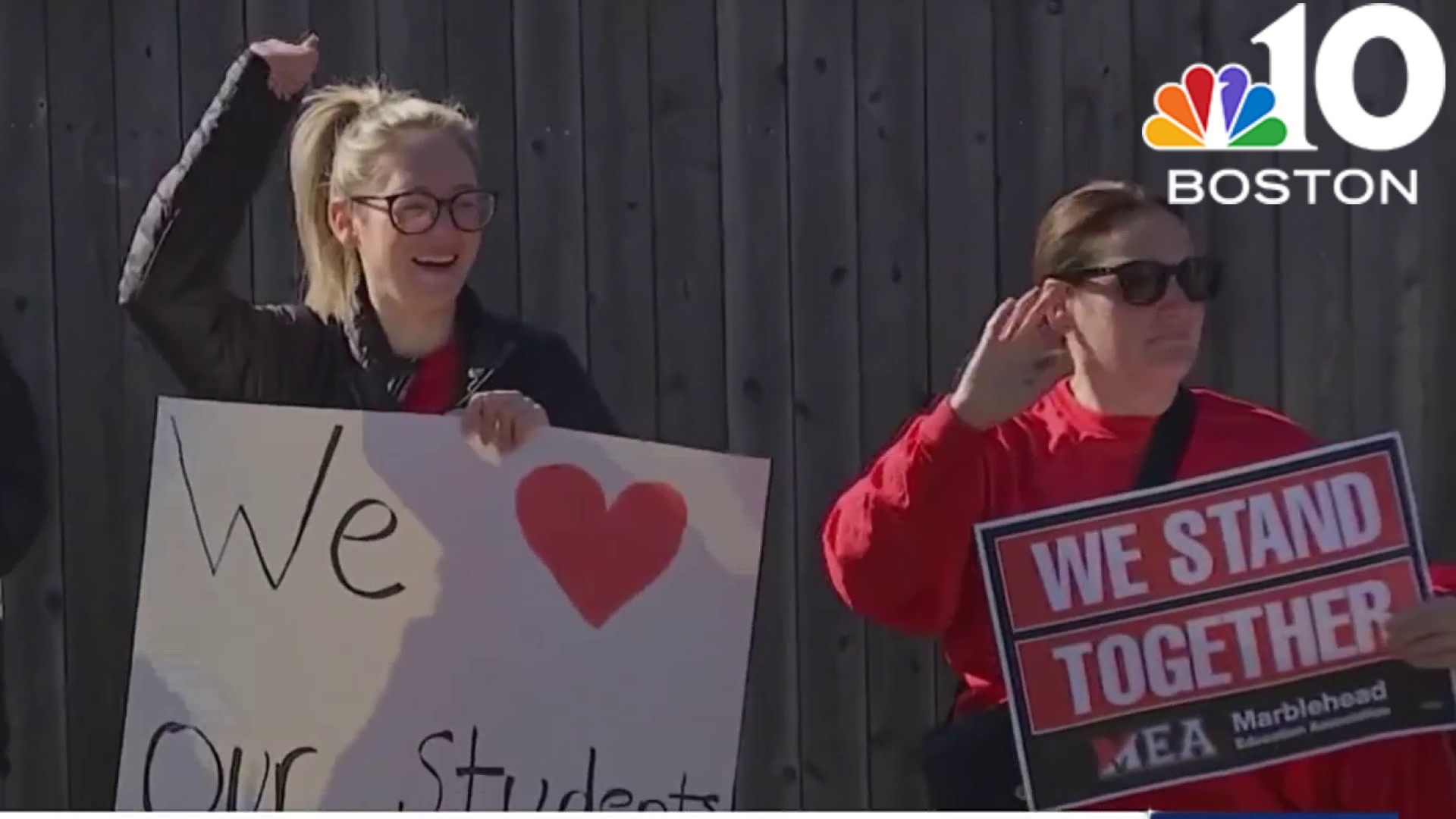With the number of newly reported cases of coronavirus falling into the double digits, Massachusetts Gov. Charlie Baker said Monday that he'll likely make a call by the end of the week whether restaurants should be allowed to open for indoor dining and whether other high-contact businesses like nail salons should be permitted to open.
The Department of Public Health reported just 58 newly confirmed COVID-19 infections on Monday and another 29 probable cases of people who have tested positive for antibodies to the virus.
Get top local stories in Boston delivered to you every morning. Sign up for NBC Boston's News Headlines newsletter.
The governor said a little more than a week ago when he announced the start of Phase 2 of the reopening that it would unfold in two steps, with activities such as indoor restaurant dining put on hold and businesses like nail salons told to wait a little longer.
The first step is underway and includes outdoor dining and in-store retail shopping. The second step of Phase 2 also included tanning salons, tattoo parlors and body piercing, personal training, massage therapy, hair removal, and hair replacement or scalp treatments.
"We continue to follow the data and I think by the time we get to the end of this week, we'll probably have an announcement to make on that," Baker said Monday when asked when the second step will be cleared for launch.
Massachusetts
When the two-step process was rolled out on June 6, Economic Development Secretary Mike Kennealy said the second step would be allowed to start at a point "determined based on continued improvements in public health metrics."
But, of course, not everything is open yet. Here's where we stand on reopening Massachusetts:
What Businesses Are Open in Massachusetts Now?
Note that reopened businesses are still required to follow workspace safety guidelines that incorporate social distancing, hygiene and staffing requirements, as well as guidelines specific to individual sectors.
- Essential businesses
- Banks and financial services
- Churches and other houses of worship
- Restaurants (outdoor seating)
- Retail stores
- Short-term lodgings like hotels, motels and inns
- Construction, home remodeling and installations
- Manufacturing
- Warehouses and distribution centers
- In-house services like babysitting and nannying
- Real estate open houses, with restrictions
- Hair salons and barbershops
- Day camps
- Youth sports
- Funeral homes
- Office spaces
- Car dealerships
- Car washes
- Drive-in movie theaters
- Libraries
- Pet grooming
- Beaches, golf clubs and facilities, parks, fishing, hunting, boating, outdoor adventure activities
- Outdoor recreational facilities like pools, playgrounds, mini golf and batting cages
- Outdoor amateur sports
- Professional sports practice and training
- Outdoor historical spaces, gardens, zoos and public spaces
- Gun stores and shooting ranges
- Lab spaces
- Casino hotels and restaurants (but not gaming floors, theaters or arenas)
- Driving schools
- Occupational schools -- if students are finishing "a degree, program, or prerequisite for employment, or other similar requirement for completion"
- Non-close contact personal services, like window washing, photography and career coaching
- Non-athletic instructional classes for arts, education or life skills, for anyone under 18 and in groups of less than 10
- Flight schools
- Beer gardens, breweries, distilleries and wineries -- if serving outdoor food under dining permits
What Businesses Are Still Closed in Massachusetts?
Any business in Step 2 of Phase 2 or in Phase 3 and 4 of the reopening plan is still required to stay closed. That includes:
- Restaurants for indoor dining (Phase 2, Step 2)
- Bars, nightclubs, dance clubs, beer gardens, breweries, distilleries and wineries (Phase 4)
- Outdoor weddings, events and large gatherings with moderate capacity (Phase 3)
- Outdoor camps (Phase 3)
- Close-contact personal services like nail salons, massages and tattoo parlors (Phase 2, Step 2)
- Movie theaters (Phase 3 for moderate-capacity theaters, Phase 4 for large-capacity theaters)
- Gyms, fitness clubs and health clubs (Phase 3, with their sauas, steam rooms and hot tubs in Phase 4)
- Personal trainers (Phase 2, Step 2)
- Indoor amateur sports and athletic facilities besides for youth programs (Phase 3)
- Museums and aquariums (Phase 3)
- Indoor historic spaces (Phase 3)
- Moderate-capacity theaters and performance halls (Phase 3)
- Large-capacity venues, like theaters, ballrooms, stadiums and convention halls (Phase 4)
- Amusement parks, theme parks and water parks (Phase 4)
- Non-athletic instructional classes for arts, education or life skills, for anyone 18 or older and in groups of any size (Phase 3)
- Movie and TV productions (Phase 3)



